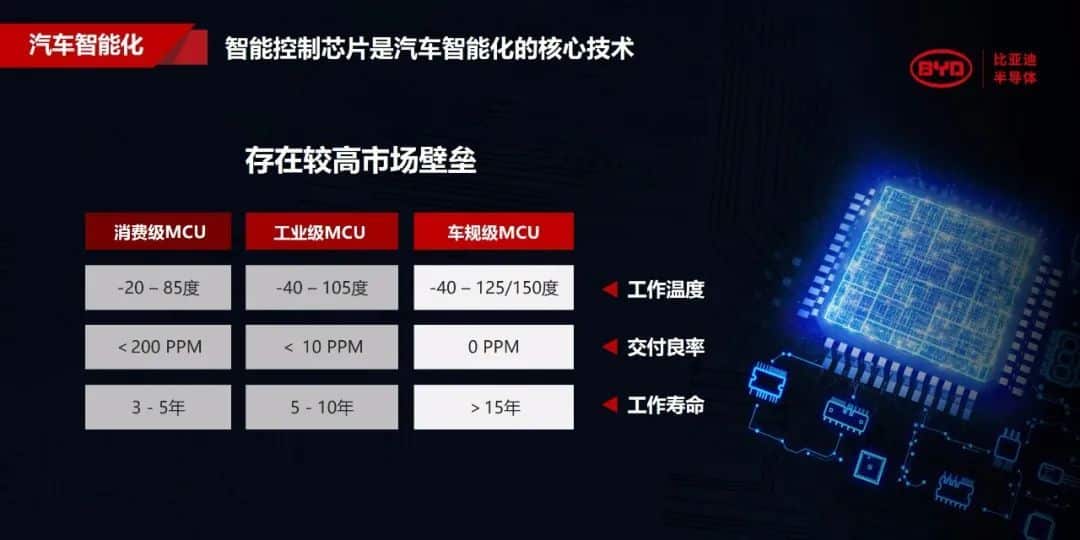BYD's semiconductor business, which has been developed independently for more than 10 years, is finally going to be listed separately on the A-share market.
The Shenzhen-listed BYD announced on June 30 that its application to spin off its subsidiary BYD Semiconductor to list on the ChiNext, a NASDAQ-style subsidiary of the Shenzhen Stock Exchange, has been received by the Shenzhen Stock Exchange.
BYD Semiconductor had recently submitted application materials to the Shenzhen Stock Exchange regarding the spin-off and received notification on June 29 that the Shenzhen Stock Exchange considered the documents to be complete and decided to accept them, the company said, without disclosing further details.
BYD had announced on May 11 that its board of directors had agreed to spin off BYD Semiconductor Co to ChiNext for listing. After the spin-off is completed, BYD's shareholding structure will not change, and it will maintain control over BYD Semiconductor.
BYD Semiconductor will continue to engage in the research and development, production and sales of power semiconductors, intelligent control IC, intelligent sensors and optoelectronic semiconductors.
BYD Semiconductor will focus on automotive-grade semiconductors in the future and promote the development of semiconductor businesses in industrial, home appliance, new energy and consumer electronics, and is committed to becoming a new type of efficient, intelligent and integrated semiconductor supplier, the company said at that time.
BYD Semiconductor was established in October 2004, and BYD directly holds 72.3 percent of the shares, making it the controlling shareholder of the company. BYD founder Wang Chuanfu indirectly controls BYD Semiconductor through BYD.
From 2018-2020, BYD Semiconductor's net profit attributable to shareholders of the parent company will be RMB 33 million ($511), RMB 30 million and RMB 32 million, respectively.
BYD said the spin-off will help BYD Semiconductor to enrich its capital strength, seize the opportunity of the rise of China's semiconductor industry, establish an independent capital market platform and a market-based incentive mechanism, and help the business to become stronger.
BYD Semiconductor launched the first generation of 8-bit automotive-grade MCU chips in 2018 and the first generation of 32-bit automotive-grade MCU chips in 2019.
As a BYD-owned company, BYD Semiconductor's automotive-grade MCU has been loaded in batch on BYD's full range of models, and more than 7 million units have been installed in total.
BYD Semiconductor has a complete automotive IGBT industry chain including design, manufacturing, packaging and vehicle application.
It launched China's first IGBT chip developed by a local company in 2009, and launched IGBT 4.0 chip in 2018, with IGBT 5.0 and IGBT 6.0 chips to be launched in the future.
As of December 2020, BYD's IGBT-based automotive-grade power devices have been installed in more than 1 million vehicles in total.
The first SiC power module developed by its in house has been applied to BYD's new flagship luxury sedan Han model with a comprehensive efficiency of over 97 percent for SiC electric control.
